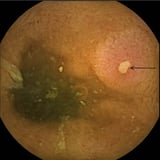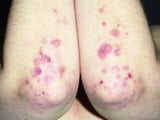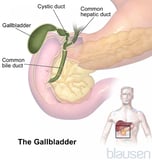Continuous Stomach Bloating Gas and Frequent Bowel Movements
Irritable bowel syndrome is a disorder of the digestive tract that causes recurring abdominal pain and constipation or diarrhea.
-
Symptoms vary but often include lower abdominal pain, bloating, gas, and constipation or diarrhea.
-
A variety of substances and emotional factors can trigger symptoms of irritable bowel syndrome.
-
A doctor usually diagnoses irritable bowel syndrome based on the symptoms but does tests to rule out other problems.
-
Diet modification and drugs can usually relieve specific symptoms.
Irritable bowel syndrome (IBS) is common among the general population. Some but not all studies suggest women with IBS are more likely to consult a doctor. IBS is the most common disorder diagnosed by gastroenterologists (doctors who specialize in disorders of the digestive tract) and is a common reason why many people visit their primary care physician.
IBS is a disorder of the movement of the intestines, the sensitivity of the nerves of the intestines, or the way in which the brain controls some of these functions. However, although the normal functioning is impaired, there are no structural abnormalities that can be found with an endoscope (a flexible viewing tube), imaging studies, biopsies, or blood tests. Thus, IBS is identified by the characteristics of the symptoms and, when done, normal results of tests.
The cause of IBS is not clear. In many people with IBS, the digestive tract is especially sensitive to stimuli. People may experience discomfort caused by intestinal gas or contractions that other people do not find distressing. Although the changes in bowel movements that occur with IBS might seem to be related to abnormal intestinal contractions, not all people with IBS have abnormal contractions, and in many of those who do, the abnormal contractions do not always coincide with symptoms. In some people, symptoms of IBS begin after an episode of gastroenteritis Gastroenteritis .
For some people, high-calorie meals or a high-fat diet may be a trigger.
For other people, wheat, dairy products, beans, chocolate, coffee, tea, some artificial sweeteners, certain vegetables (such as asparagus or broccoli), or stone fruits (such as apricots) seem to aggravate the symptoms. These foods contain carbohydrates that are poorly absorbed by the small intestine. The carbohydrates become fermented by bacteria in the intestine, which causes gas, bloating, and cramping. Because many food products contain several ingredients, it may be difficult to identify the specific trigger.
Other people find that eating too quickly or eating after too long a period without food stimulates a flare-up (a bout or attack). However, the relationship is inconsistent.
Emotional factors (for example, stress, anxiety, depression, and fear), drugs (including laxatives), or hormones may trigger or worsen a flare-up of IBS.
People do not always get symptoms after a usual trigger, and symptoms often appear without any obvious trigger. It is not clear how all the triggers relate to the cause of IBS.
IBS tends to begin in adolescence and the 20s, causing bouts of symptoms that come and go at irregular periods. The start of IBS symptoms in late adult life is less common but not rare. Flare-ups almost always occur when a person is awake, and they rarely wake a person from sleep.
Bloating, gas Gas Gas is normally present in the digestive system and may be expelled through the mouth (belching) or through the anus (flatus). There are three main gas-related complaints: Excessive belching... read more , nausea Nausea and Vomiting in Adults Nausea is an unpleasant feeling of needing to vomit. People also may feel dizziness, vague discomfort in the abdomen, and an unwillingness to eat. Vomiting is a forceful contraction of the stomach... read more , headaches, fatigue, depression, anxiety, muscle aches, problems with sleep, and difficulty concentrating are other possible symptoms.
-
A doctor's evaluation based on the person's symptoms
-
Some laboratory tests to look for other disorders
Most people with IBS appear healthy. Doctors base the diagnosis of irritable bowel syndrome on the characteristics of the person's symptoms. Doctors also use standardized symptom-based criteria for diagnosing IBS called the Rome criteria. They may also do tests to diagnose common illnesses that can cause similar symptoms, particularly when people are over 45 or have warning signs such as weight loss, rectal bleeding, or older age.
Doctors use the Rome criteria to diagnose IBS in people who have had abdominal pain for at least 1 day a week in the last 3 months along with 2 or more of the following:
-
Pain is related to defecation.
-
Pain is associated with a change in stool frequency (constipation or diarrhea).
-
Pain is associated with a change in the consistency of stool.
Doctors usually do some tests, for example, blood tests, to differentiate IBS from Crohn disease Crohn Disease Crohn disease is an inflammatory bowel disease where chronic inflammation typically involves the lower part of the small intestine, the large intestine, or both and may affect any part of the... read more  , ulcerative colitis Ulcerative Colitis Ulcerative colitis is a chronic inflammatory bowel disease in which the large intestine (colon) becomes inflamed and ulcerated (pitted or eroded), leading to flare-ups (bouts or attacks) of... read more , cancer (mainly in people over age 45), microscopic colitis, celiac disease Celiac Disease Celiac disease is a hereditary intolerance to gluten (a protein found in wheat, barley, and rye) that causes characteristic changes in the lining of the small intestine, resulting in malabsorption... read more
, ulcerative colitis Ulcerative Colitis Ulcerative colitis is a chronic inflammatory bowel disease in which the large intestine (colon) becomes inflamed and ulcerated (pitted or eroded), leading to flare-ups (bouts or attacks) of... read more , cancer (mainly in people over age 45), microscopic colitis, celiac disease Celiac Disease Celiac disease is a hereditary intolerance to gluten (a protein found in wheat, barley, and rye) that causes characteristic changes in the lining of the small intestine, resulting in malabsorption... read more  , and other diseases and infections that can cause abdominal pain and changes in bowel habits. These test results are usually normal in people with IBS.
, and other diseases and infections that can cause abdominal pain and changes in bowel habits. These test results are usually normal in people with IBS.
Other digestive tract disorders (such as appendicitis Appendicitis Appendicitis is inflammation and infection of the appendix. Often a blockage inside the appendix causes the appendix to become inflamed and infected. Abdominal pain, nausea, and fever are common... read more , gallbladder disease Overview of Gallbladder and Bile Duct Disorders The liver produces bile, a greenish yellow, thick, sticky fluid. Bile aids digestion by making cholesterol, fats, and fat-soluble vitamins easier to absorb from the intestine. Bile also helps... read more  , ulcers, and cancer) may develop in a person with IBS, particularly after age 45. Thus, if a person's symptoms change significantly, if new symptoms develop, or if symptoms are unusual for IBS, further testing may be needed.
, ulcers, and cancer) may develop in a person with IBS, particularly after age 45. Thus, if a person's symptoms change significantly, if new symptoms develop, or if symptoms are unusual for IBS, further testing may be needed.
Because IBS symptoms can be triggered by stress and emotional conflicts, doctors ask questions to help identify stress, anxiety, or mood disorders. Doctors also ask questions to rule out laxative abuse.
-
Eating a normal diet and avoiding gas-producing and diarrhea-producing foods
-
Increasing fiber and water intake for constipation
-
Sometimes drugs
Treatment of IBS differs from person to person. If particular foods or types of stress appear to bring on the problem, they should be avoided if possible. For most people, especially those who tend to be constipated, regular physical activity helps keep the digestive tract functioning normally.
(For more information about diet and IBS, see these recommendations from the National Institute of Diabetes and Digestive Disease.)
Many people do better eating frequent, smaller meals rather than less frequent, larger meals (for example, 5 or 6 small meals rather than 3 large meals a day). People should try to slow their pace while eating. People with bloating and increased gas (flatulence) should avoid beans, cabbage, and other foods that are difficult to digest.
Sorbitol, an artificial sweetener used in some foods, drugs, and chewing gums, should not be consumed in large amounts. Fructose, a sugar found in fruits, berries, and some plants, should be eaten only in small amounts. People who have IBS and who cannot digest the sugar lactose (called lactose intolerance Lactose Intolerance Lactose intolerance is the inability to digest the sugar lactose because of a lack of the digestive enzyme lactase, leading to diarrhea and abdominal cramping. Lactose intolerance is caused... read more ), which is found in milk and other dairy products, should consume dairy products only in moderation.
People can try reducing their intake of the foods mentioned above one at a time and noting whether their symptoms change, or they can try a low-FODMAP diet, which restricts all of these foods.
A low-fat diet helps some people, particularly those whose stomach empties too slowly or too quickly.
Constipation can often be relieved by eating more fiber and drinking more water. People with constipation can take psyllium mucilloid supplements with two glasses of water. Increasing the dietary fiber may aggravate flatulence and bloating. Occasionally, such flatulence may be reduced by switching to a synthetic fiber preparation (such as methylcellulose).
Certain laxatives are reasonably safe and often effective for people with constipation. Such laxatives include those containing polyethylene glycol and stimulant laxatives, such as those containing bisacodyl or glycerin. The prescription laxative drugs lubiprostone, linaclotide, plecanatide, and tenapanor may also relieve constipation. Prucalopride is another drug that may help people who have chronic constipation.
Anticholinergic drugs, such as hyoscyamine, can sometimes relieve abdominal pain by blocking spasms of the intestinal muscles. However, these drugs often cause anticholinergic side effects ( see Anticholinergic: What Does It Mean? Anticholinergic: What Does It Mean? ![]() ), such as dry mouth, blurred vision, or difficulty urinating.
), such as dry mouth, blurred vision, or difficulty urinating.
Antidiarrheal drugs, such as diphenoxylate or loperamide, help people with diarrhea. Eluxadoline is another drug that may be given to some people who have severe diarrhea caused by IBS.
The antibiotic rifaximin may be prescribed to relieve symptoms of diarrhea, bloating, and abdominal pain.
Alosetron is occasionally used for diarrhea in older women for whom other drugs are ineffective, but alosetron has been associated with increasing the risk of ischemic colitis, so its use is restricted in the United States.
Certain antidepressants help relieve symptoms of abdominal pain as well as diarrhea and bloating in many people. Long-term use of certain antidepressants such as nortriptyline or desipramine is often helpful. Antidepressants may not only relieve pain and other symptoms but also may help relieve sleep problems and depression or anxiety.
Probiotics, which are bacteria naturally found in the body that promote the growth of good bacteria, may be given.
Aromatic oils, such as peppermint oil, often help relieve pain caused by cramps in some people.
The following are some English-language resources that may be useful. Please note that THE MANUAL is not responsible for the content of these resources.
richardsongolould.blogspot.com
Source: https://www.msdmanuals.com/home/digestive-disorders/irritable-bowel-syndrome-ibs/irritable-bowel-syndrome-ibs
0 Response to "Continuous Stomach Bloating Gas and Frequent Bowel Movements"
Publicar un comentario